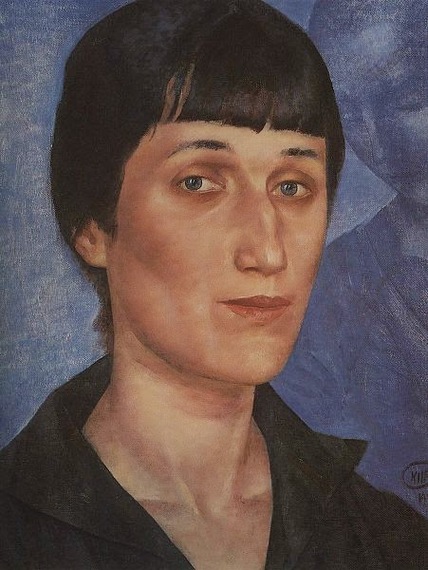Times Op-Ed columnist David Brooks wrote a recent piece about the night Isaiah Berlin the famed philosopher and Anna Akhmatova, the equally famous Russian poetess spent the night together ("Love Story," NYT, 5/1/14) Brooks hastens to make clear that spending the night together was a purely Platonic affair, which is probably a good way to describe a meeting which includes a philosopher. But the piece exudes a nostalgia for a time in history when there were still people who were passionate about ideas. Can we say that ancient Greece, the Middle Ages (scholasticism), the great age of Islam, the Enlightenment and the great age of ideas preceding and directly following the Russian Revolution (and documented in Tom Stoppard's The Coast of Utopia) exemplify periods in which the leaders of society trafficked in ideas. Brooks remarks:
Berlin and Akhmatova were from a culture that assumed that, if you want to live a decent life, you have to possess a certain intellectual scope. You have to grapple with the big ideas and the big books that teach you how to experience life in all its richness and make subtle moral and emotional judgments.
This is all admirable, but today one can be a lover of Chekhov and Dostoevsky, Pushkin and Turgenev and their more modern counterparts who are more likely to be found in the ranks of filmmakers like Bergman, Antonioni, Kurosawa, Mizoguchi than among poets, novelists or philosophers and still realize the difference between the human being and the works he or she produces. Bergman was our modern Shakespeare, but reading about him you realize that his knowledge to the soul didn't extend to himself. Like Picasso and many other great artists he left a path of human wreckage in his wake. Tolstoy, one of the greatest writers of all time, exerted his Droit du seigneur with the peasants on his estate and then converting to a Christian view ended up running away from his wife, Sonya, and dying alone of pneumonia in the Astapovo train station. Dostoevsky, whose The Grand Inquisitor section of The Brothers Karamazov, may rank as the greatest passages in literature was a compulsive gambler and anti-Semite. When you read about the lives of great thinkers and artists, one is forced to note that the human factor is the one thing that is often missing. Isaiah Berlin and Anna Akhmatova were standard bearers for culture. But would you have wanted to spend the night with either of them, particularly if you hadn't done your homework? Would you want to hang out with those clowns?
Painting of Anna Akhmatova by Kuzma Petrov-Vodkin
This was originally posted to The Screaming Pope, Francis Levy's blog of rants and reactions to contemporary politics, art and culture.
